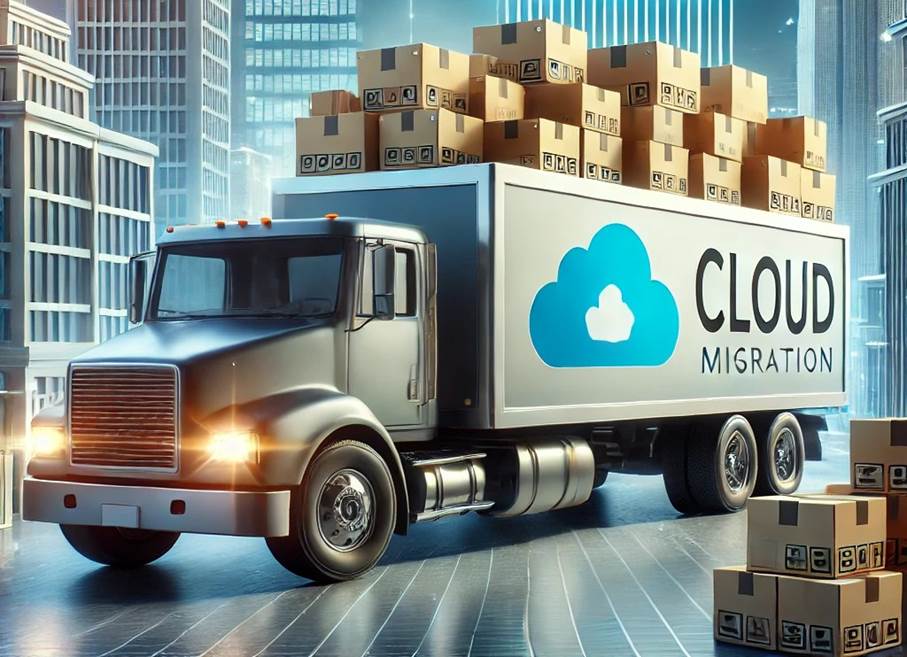Why AWS is setting new standards with the European Sovereign Cloud
I was at an AWS partner event in Munich two weeks ago. Among all the exciting presentations, there was one that I found strategically very interesting: The renewed, emphatic emphasis on the imminent launch of the AWS European Sovereign Cloud (ESC) by the end of 2025.
For some, this may have been just another regional announcement. I think this move is one of the smartest moves we've seen in the cloud market for a long time. Because it not only introduces a new product, but also tackles head-on and potentially ends a long-standing, deadlocked debate in the European IT market.

The "feature poverty" vs. the CLOUD Act
The last few years in the cloud business have been characterized by a fundamental compromise. As an IT service provider, we (and our customers) were constantly faced with a binary choice:
- Team A (US Hyperscaler): You get the full power of innovation. The price for this is a massive legal and moral stomach ache called US CLOUD Act. The concern that US authorities could gain access to business secrets, regardless of the storage location in Frankfurt or Dublin.
- Team B (European hosters): You get real data security and GDPR compliance. You could justifiably argue that the data is secure. But here, too, you pay a price, namely what I simply call „Feature poverty“ were still in their infancy. Often based on OpenStack or virtualized monoliths, the depth of features and speed of innovation lagged miles behind.
For years, our main argument against Team B's lack of features was that you at least get „real European hosting“ with us. It was a valid but defensive argument.
Microsoft's "sovereignty bluff"
Microsoft then tried to bridge this gap with its „EU Data Boundary“. A marketing promise to keep all M365 and Azure data in Europe. What happened? The German data protection conferences called the bluff.
They repeatedly found that the use of M365 in compliance with data protection regulations could not be proven. The problem was never just the Data Residency (the storage location), but the Data Sovereignty (the control). As long as a US company is in control, the „backdoor“ of the CLOUD Act remains an unsolved problem. Microsoft's headlines in this area have been a PR disaster that has fundamentally damaged the credibility of the „EU Data Boundary“.
And it is precisely into this wound that AWS is now poking with surgical precision.
What AWS is planning in Brandenburg is not „another EU region“. It is a new architectural and legal building that precisely addresses Microsoft's weak points:
- Legal decoupling: There will be a new parent company founded in Germany under German law.
- Operational decoupling: Perhaps the most important point. The operation, support and physical access are exclusively by EU citizens resident in the EU carried out. No US employee should have access - the CLOUD Act is therefore a dead letter.
- Technical decoupling: This is not a „VLAN region“. The ESC will be its own separate „partition“. It will be connected via a Own, independent Identity and Access Management (IAM), its own billing and even its own instances for core services such as DNS (Route 53).
AWS has analyzed Microsoft's weak response to the sovereignty issue and is now building exactly what the DSK and the BSI have been implicitly demanding for years. It is noteworthy in this context that AWS is already the first provider to receive the BSI's C5 certificate, a clear signal that cyber security and compliance play a central role in building the Sovereign Cloud.
If the ESC were a „sovereignty cloud light“ - i.e. secure but functionally limited - the market would hardly move.
But AWS promises the opposite. They have announced that the ESC will not only start with the core services (EC2, S3, VPC), but also with the strategically most important innovation drivers.
What the European Sovereign Cloud means for us as an IT industry
There are many advantages AWS European Sovereign Cloud is a double declaration of war.
- To Microsoft: It exposes the „EU Data Boundary“ as an inadequate marketing attempt. Microsoft is under massive pressure to deliver a technically and legally equivalent model.
- To the European hosting market: It is an existential attack. The unique selling point „We host securely in Europe“ is worthless if the global market leader promises the same thing and the most modern AI portfolio on top.
For us as an IT service provider, the playing field is changing fundamentally and the „sovereignty OR features“ debate could soon be over.
I consider the AWS European Sovereign Cloud to be an extremely positive and necessary development in the European cloud market. It remains to be seen whether AWS will actually achieve complete legal and operational decoupling in practice and how quickly customers will gain confidence. This development could permanently reshape the cloud landscape in Europe. It will be interesting to see how the market reacts and who ultimately sets the new sovereignty benchmark.
The launch of the AWS European Sovereign Cloud shows just how diverse the options in the cloud market have become. In our Platform consulting we support you in checking which approach really fits your strategy, regardless of whether Hyperscaler or European OpenStack alternative.


